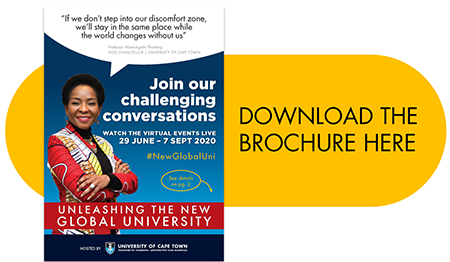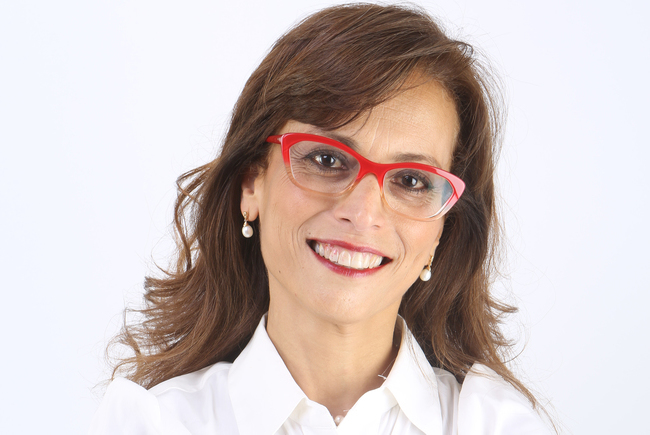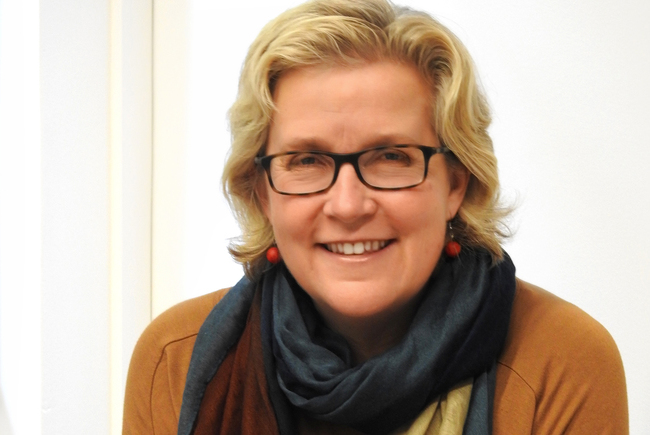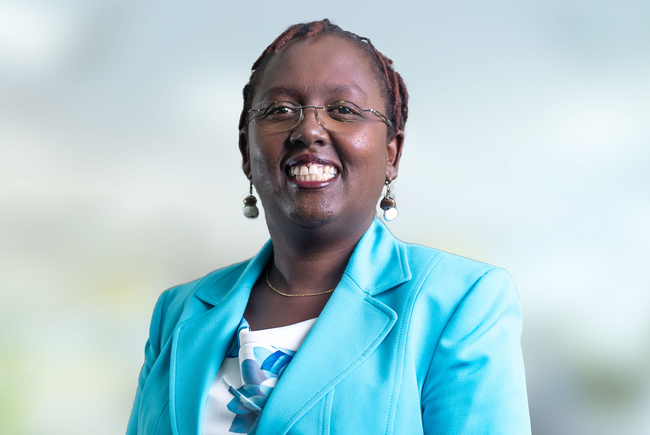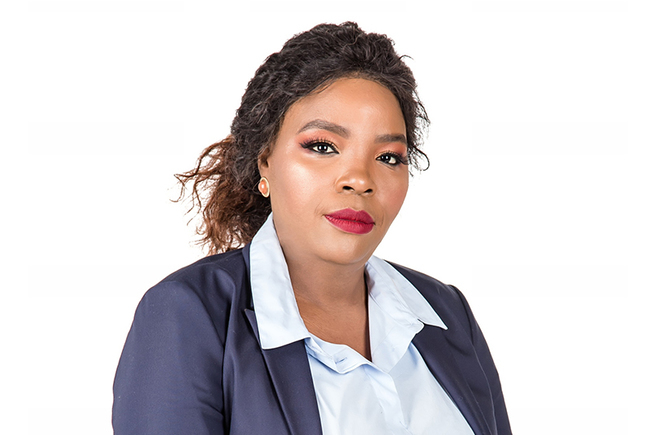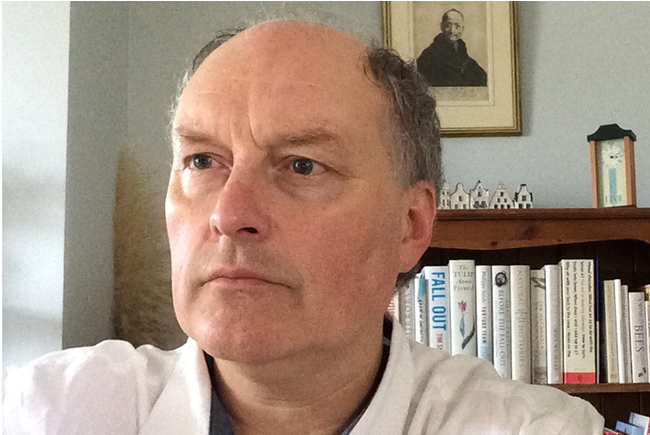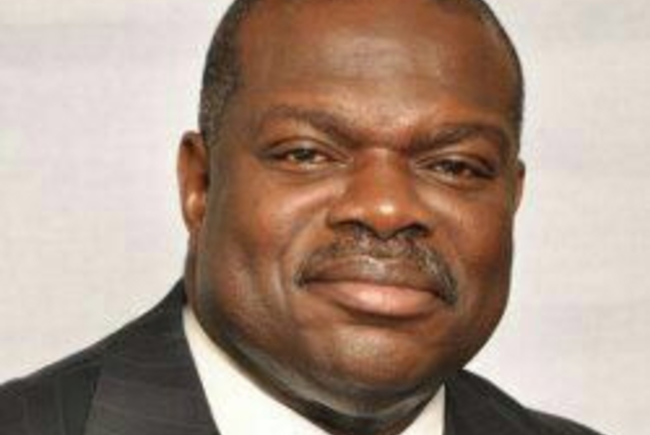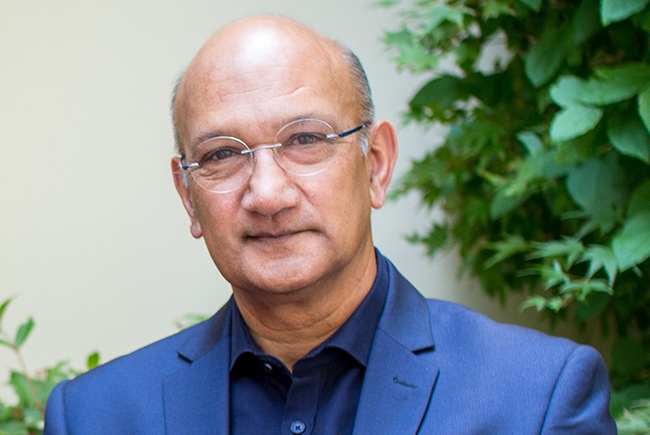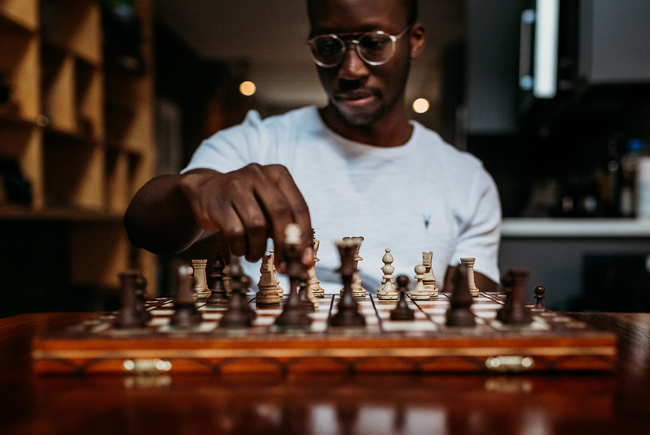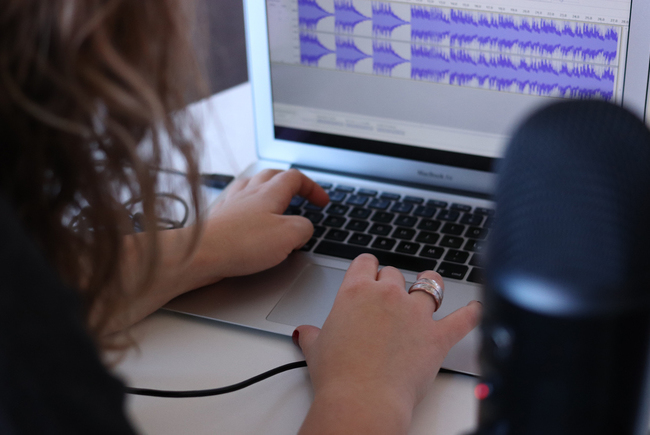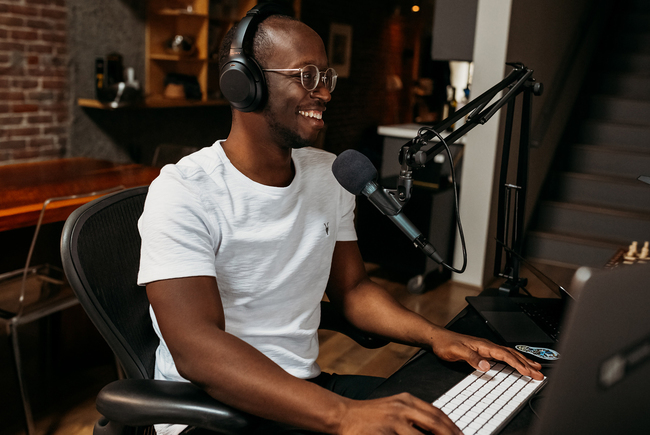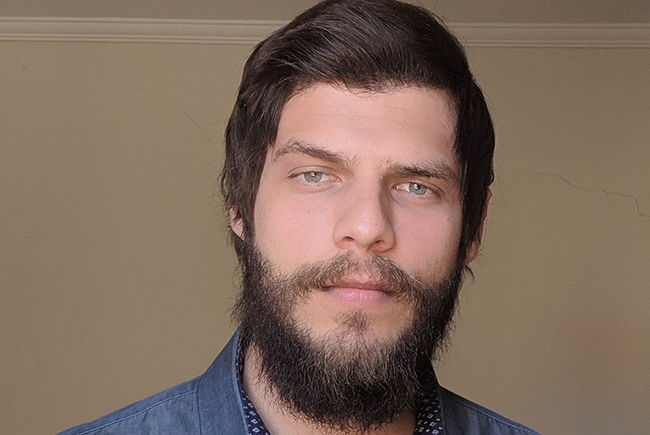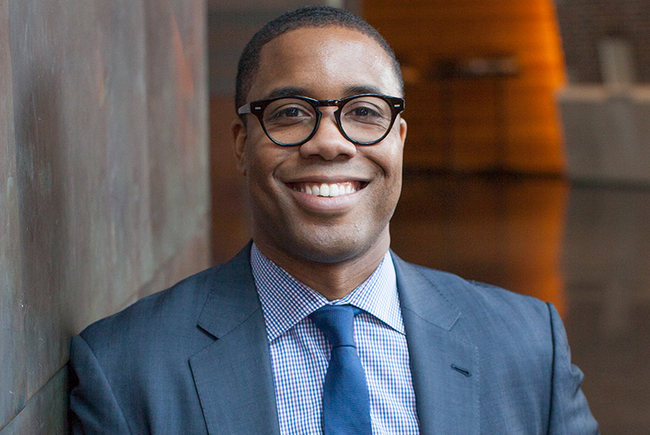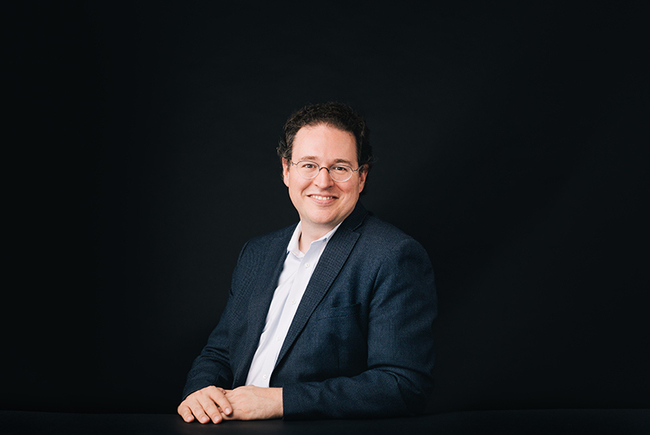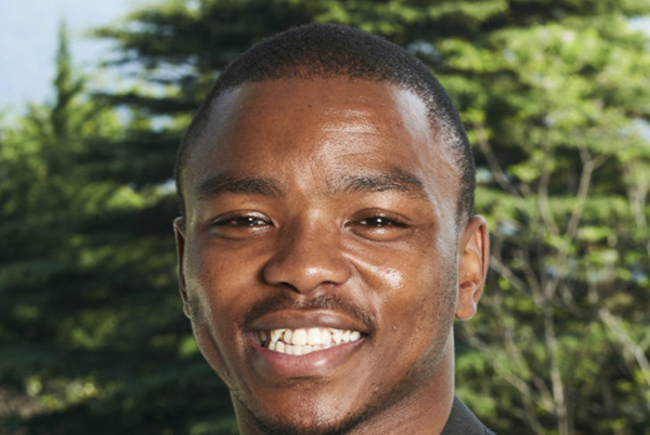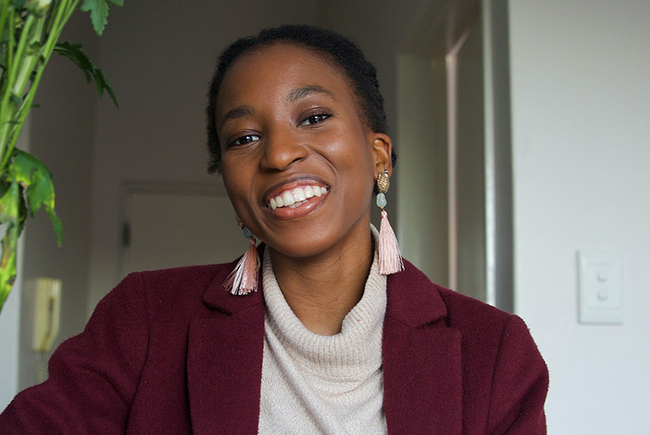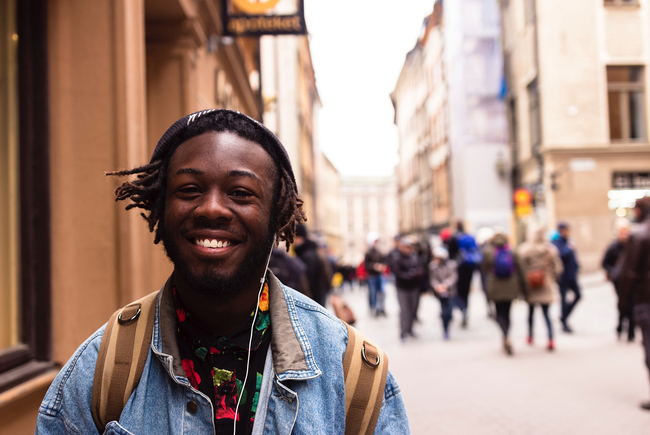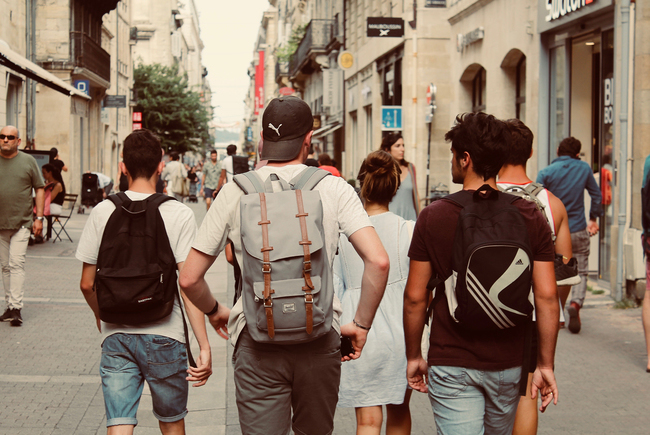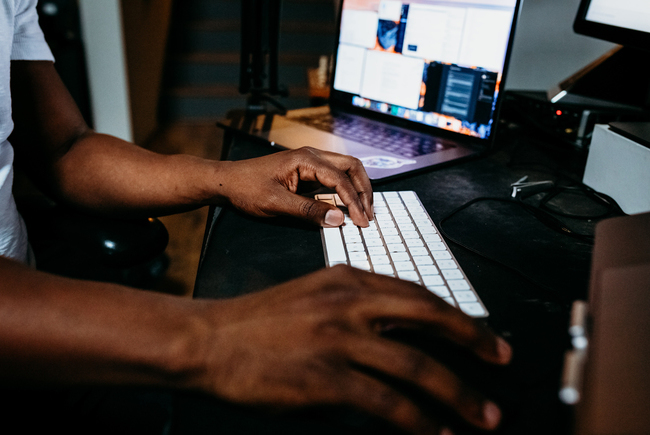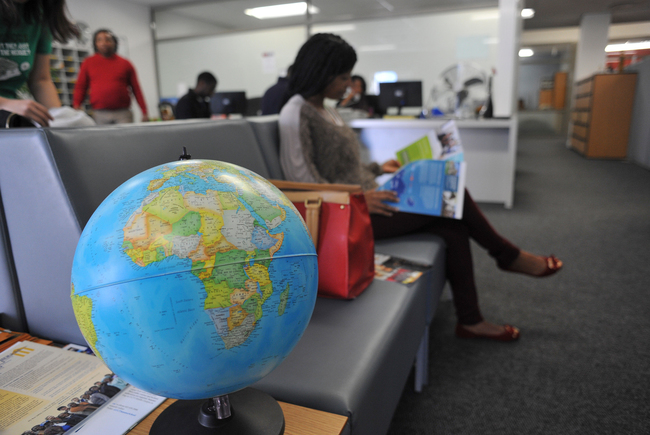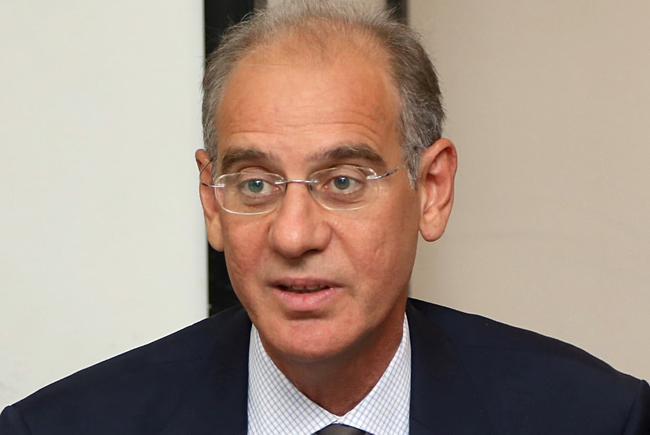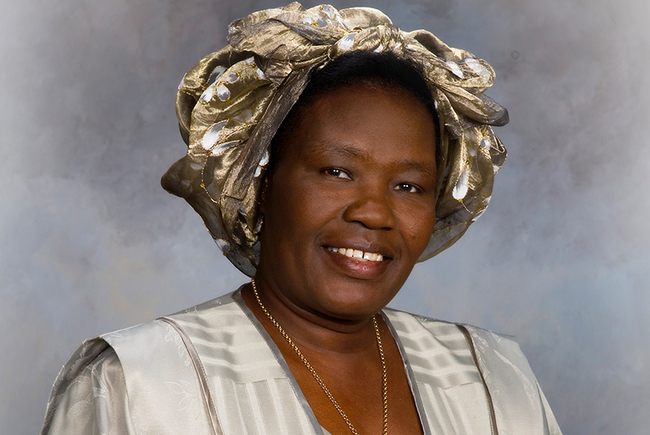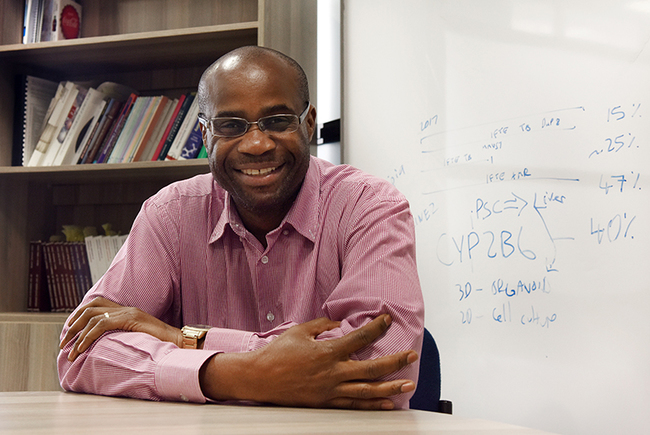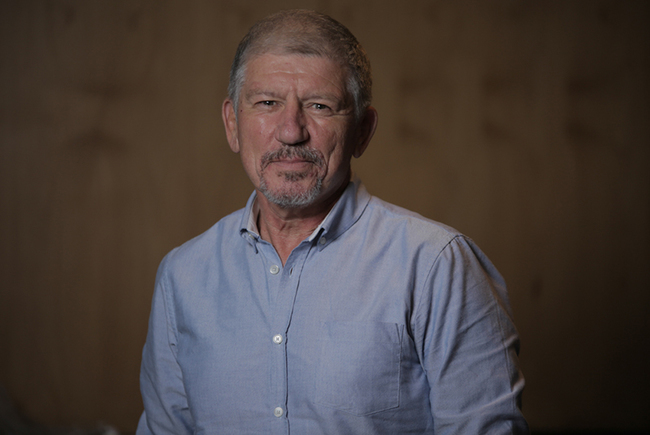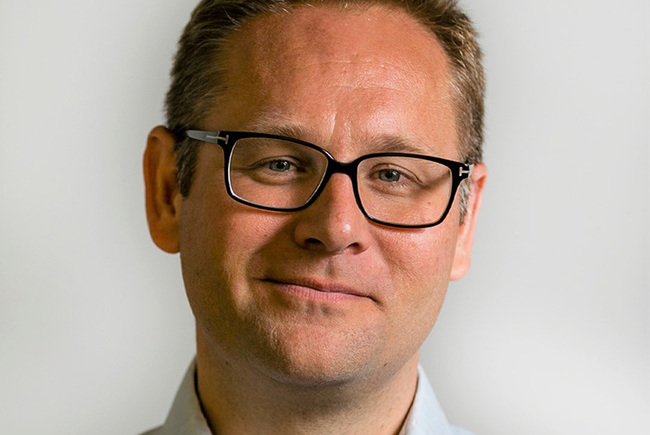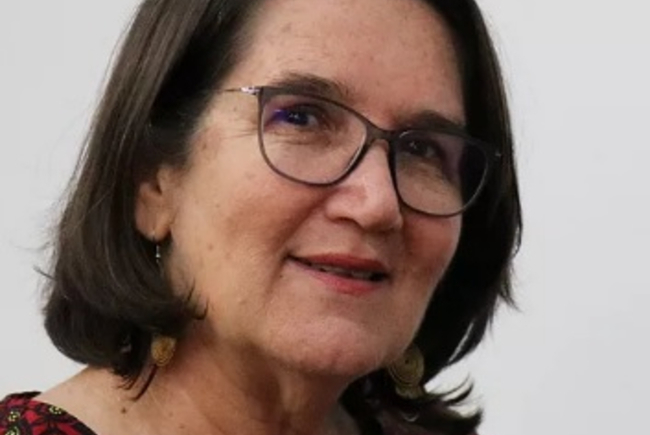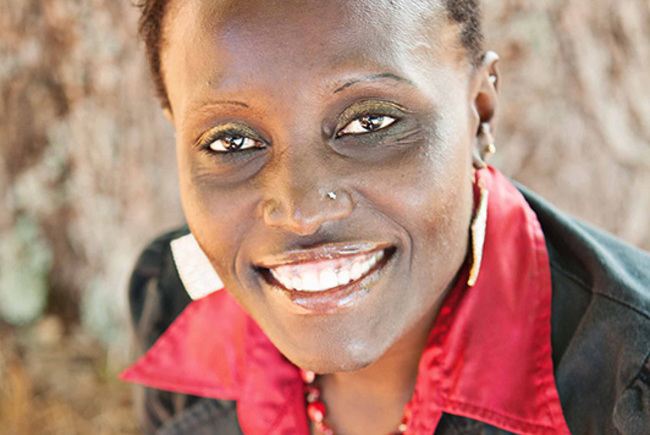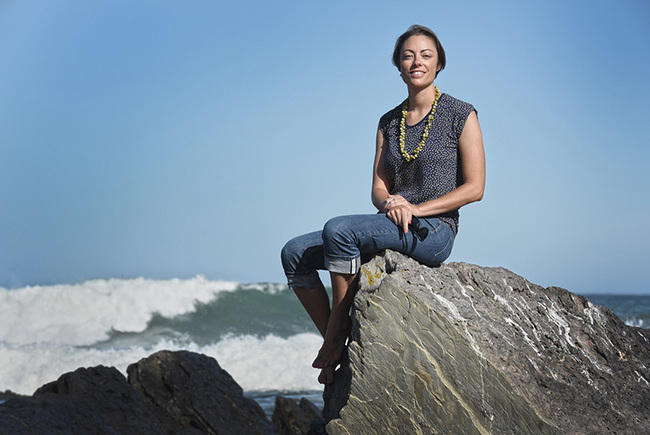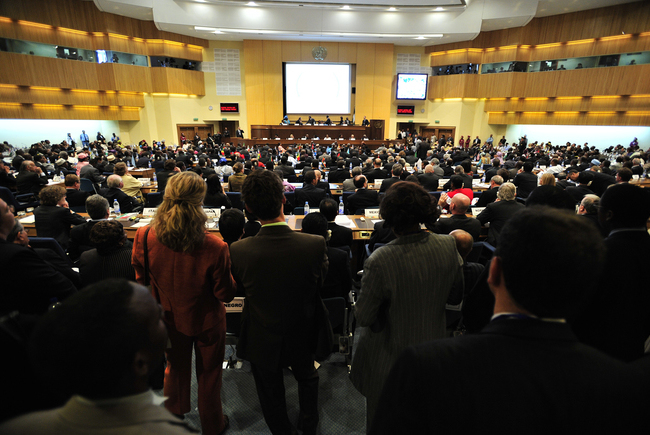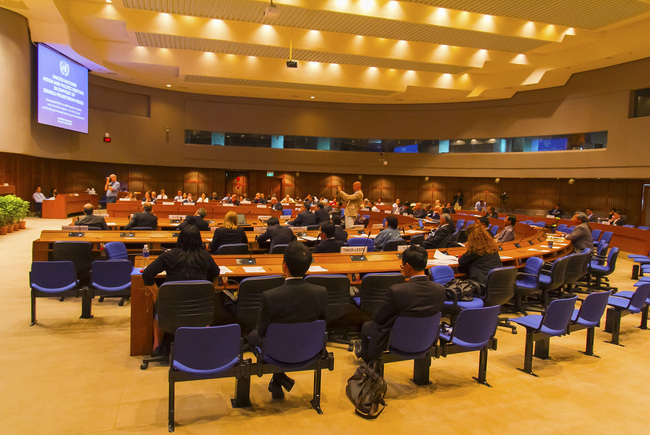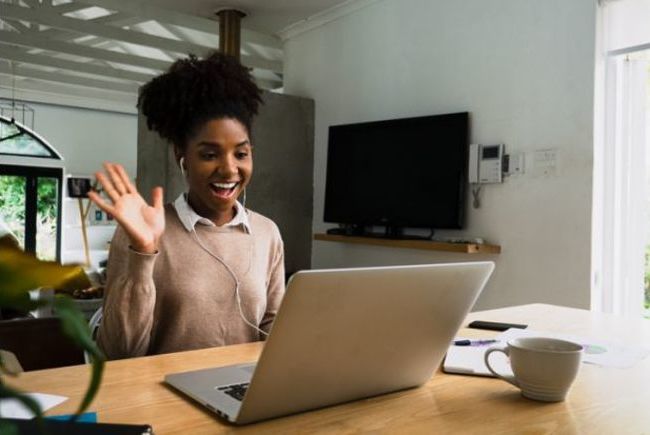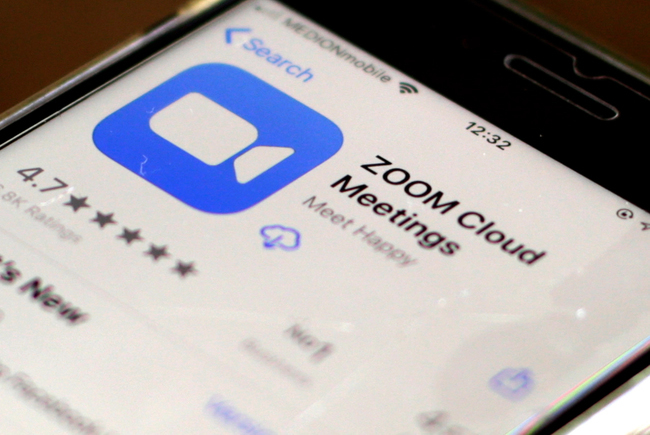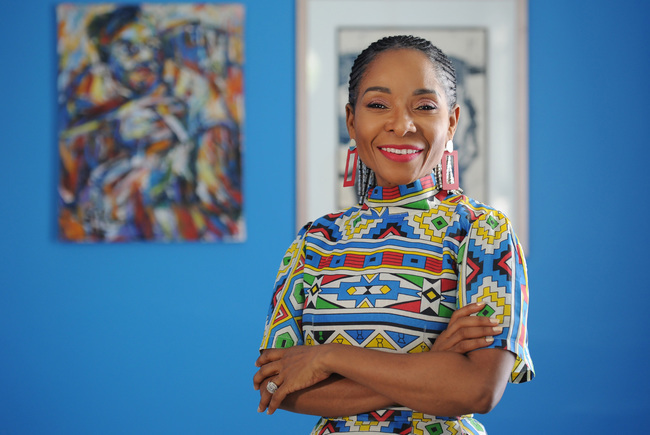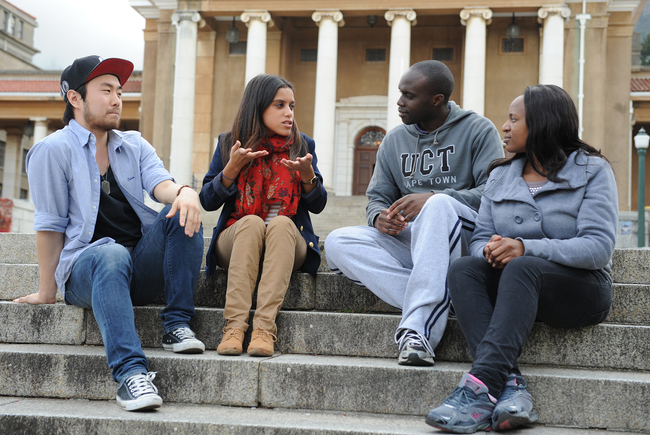5 insights on the new digital reality in higher education
11 September 2020 | Story Laura Rawden. Photo Twitter. Read time 8 min.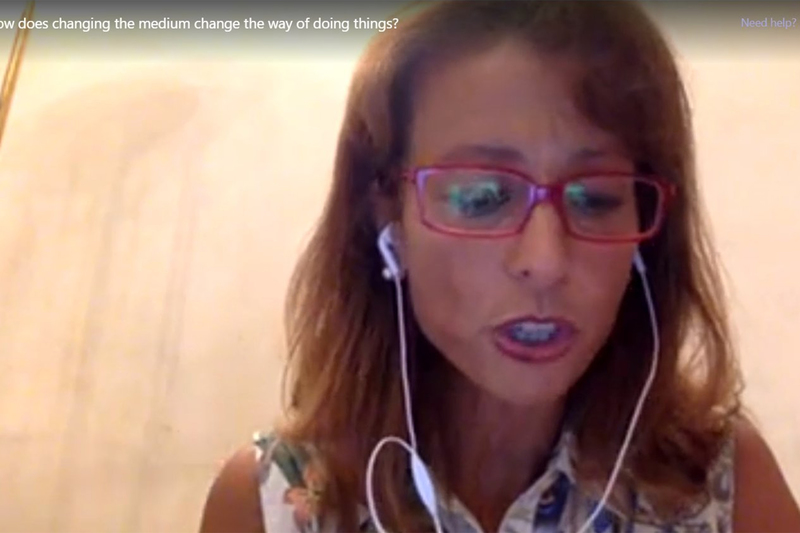
“What do we lose or gain when we go virtual?” asked University of Cape Town (UCT) vice-chancellor Mamokgethi Phakeng in opening the fifth and final #NewGlobalUni event held on 7 September.
Describing herself as optimistic about the digital future of higher education, and its potential for inclusivity and disrupting power imbalances between the global north and south, Phakeng noted too its challenges.
“As we push the boundaries of innovation, we have to ensure that by doing things differently we do things better,” she said.
Unpacking these considerations were three leading academics from Egypt, Australia and Kenya who shared five takeaways for how the move to digital changes the way of doing things.
Technology goes beyond the internet
Significantly, the dual potentials of technology must be considered when adopting the medium within higher education.
According to Nagla Rizk, professor of economics and the founding director of the Access to Knowledge for Development Center (A2K4D) at the American University in Cairo, technology could exacerbate inequalities and expose the digital divide, or, if used consciously, it could mitigate such inequalities.
“We always think of connectivity as the internet, but it can also be simple technologies like the radio, television, mobile technology and simple apps,” she pointed out.
“The future of higher education is definitely blended – a combination of physical and virtual interactions.”
Monica Kerrets-Makau, academic director for Africa at Nairobi’s Thunderbird School of Global Management, called for technology systems to be challenged, questioning privacy and ownership. “Who gets to keep my knowledge when I teach on these commodified instruments?” she asked.
A blended approach is needed
“The future of higher education is definitely blended – a combination of physical and virtual interactions,” said Phakeng, painting a picture of groups of students moving between face-to-face learning, online lessons and work placement.
She called the idea of needing everyone to be on campus all the time “old fashioned” but acknowledged that physical presence is a necessity for some. “Not just because of the nature of their work or studies, but because maybe it provides a safe space with access to facilities,” she said, adding that such presence also builds communities.
Kerrets-Makau noted the “politicisation of space” and queried why a course such as agriculture is taught in a classroom rather than in an agricultural setting, and how international field trips can continue under current travel bans. “Online content cannot replace being on the ground. How do you teach about being in the context of place?” she asked.
Digital can transform research
Rizk sees the move toward digital interactions as an opportunity for research to transform, including voices from different regions. “Articles in top-tier journals are usually centred on issues related to the global north,” she said, “but there are so many forms of academic expression and rigorous academic content that can be presented from the global south to level the playing field so that everyone can benefit and learn.”
For Rizk, it’s a transition that has been a long time coming. “It’s about time that research is open to different participants on issues that touch people’s lives in different parts of the world,” she said.
“Online content cannot replace being on the ground.”
This is particularly important for Africans, underlined Kerrets-Makau, as those who live on the continent and know it best are gaining a stronger voice. “That's extremely disruptive to our notions of learning, understanding and our notions of Africa,” she said.
Old concepts must change
The COVID-19 pandemic is an opportunity to harness creativity and shape a new norm of open educational resources, said Rizk. She suggested a shift toward different models for institutional structures, including ideas such as multi-campus consortia, the internationalisation of content, and joint research networks and curricula.
Kate Bowles, associate dean international of the Faculty of the Arts, Social Science and Humanities at the University of Wollongong in Australia, suggested some are clinging to what they have always done and merely transferring them online.
“It’s about time that research is open to different participants on issues that touch people’s lives in different parts of the world.”
For example, she noted how universities are continuing to lecture online instead of rethinking the lecturing model, and that old attendance registers have been replaced with screenshots of virtual video call participants.
“We need to become more courageous and be more imaginative, rather than hold onto this ‘urge to preserve’” if real change is to be made. Said Bowles, “Learning is what happens when students spend a certain amount of time in a room. Pay is what happens when people spend a certain amount of time at work, and revenue is what happens when time, to degree, is a predictable pipeline of money into a university,” said Bowles. “Are we able to embrace that time is unsettled?”
Information must be shared affordably
“Knowledge is a public good, not a private good, and the value of knowledge increases by sharing,” said Rizk. She acknowledged that differentiation is key when requiring a financial return on sharing information, and recommended packaging content in new versions – from the more expensive hardcover book to the more affordable e-book – and staggering payment options according to people’s financial situations.
“The model of depending on student fees and donations is not enough,” she said, suggesting universities partner with corporate companies, such as those in the telecommunications industry, to fund content and “encourage connectivity”.
This theme of diversity continues a thread that’s weaved through all five of the #NewGlobalUni events, said Phakeng. “Business as usual is not going to transform our university, country or continent.”
Follow the #newglobaluni and join the conversation on Twitter.
 This work is licensed under a Creative Commons Attribution-NoDerivatives 4.0 International License.
This work is licensed under a Creative Commons Attribution-NoDerivatives 4.0 International License.
Please view the republishing articles page for more information.
Unleashing the new global university
A series of challenging conversations
The pandemic has disrupted higher education international activities and the income on which universities increasingly depend. But the previous model was already problematic, contributing to global warming and benefitting rich universities more than poor. Unleashing the new global university is a series of virtual events in which we invite innovative, international and local speakers to have challenging conversations that help us rethink global collaborations for a sustainable and equitable planet.
Conversation #5: How does changing the medium change the way of doing things?
Monday, 7 September 2020, 17:30–18:30 (CAT/SAST)
Covid-19 has radically changed the ways that universities do everything: research, teaching, social responsiveness and internationalisation. International students have gone home or are in lockdown unable to physically experience the countries they are visiting; they are completing courses through remote learning. Conferences have gone online. Researchers are collaborating on virtual platforms.
Ironically, the lockdown has seen an opening up of connections, as distance ceases to be a barrier. While the opportunity to tangibly experience the location has gone, there have been many positive aspects to these changes, which universities have embraced, and are looking to take into the future.
The great hope has been that we can use the new technologies on which we are now relying during the pandemic to be more creative in the ways we shape international experiences and collaborations, and to do so in ways that lessen the negative characteristics of the old model.
How will changing the medium challenge the nature of global relationships? What have the opportunities been to decentre and disturb existing internationalised power relations?
This session will creatively address how more equal relationships might be formed; how digitally mediated forms of global engagement might enable what Nancy Fraser calls “participatory parity”.
Host
- Mamokgethi Phakeng, vice-chancellor, University of Cape Town, South Africa
Moderator
- Laura Czerniewicz, professor, director: Centre for Innovation in Learning and Teaching (CILT), University of Cape Town, South Africa
Participants
Videos
News
Conversation #4: Postgraduate researchers: can we rethink the international experience?
Monday, 24 August 2020, 17:30–18:30 (CAT/SAST)
What are the markers of a truly enriching postgraduate experience? From a global north perspective, being able to travel abroad to access resources and expertise from elsewhere in the globe, create new networks and build a CV have been almost taken for granted and a central tenet of the postgraduate experience. Postgraduates in the global south have had far fewer opportunities for mobility. The COVID-19 pandemic has ended international travel for all postgraduates, creating an opportunity to stop and think: can we make the postgraduate international experience more equitable by going virtual? In this challenging conversation, we explore what will be lost and gained if postgraduates gain an international experience as deskchair travellers.
Host
- Mamokgethi Phakeng, vice-chancellor, University of Cape Town
Moderator
- Sue Harrison, deputy vice-chancellor for research and internationalisation, University of Cape Town
Participants
Videos
News
Conversation #3: Undergraduate student mobility: are virtual experiences a realistic substitute?
Monday, 27 July 2020, 17:30–18:30 (CAT/SAST)
The number of undergraduate students travelling for part or all of their degrees has increased dramatically in the last few years. Some of these students are on exchange or scholarships; the majority pay large fees, which increasingly form a substantive portion of the income of their destination institutions. The pandemic brought most of this mobility to a halt. These international experiences can be rich, even life-changing: both the exposure to new ways of thinking, but also to new ways of living. But they come at a cost – both to the environment, and often to the student, meaning only the well-off can afford them. Using what we are learning from the global shift to emergency online teaching and learning, can we envisage a more sustainable, equitable model? What are the most valuable aspects of the international experience for students, and for which of those can we find creative virtual alternatives?
Host
- Mamokgethi Phakeng, vice-chancellor, University of Cape Town
Moderator
- Sue Harrison, deputy vice-chancellor for research and internationalisation, University of Cape Town, South Africa
Participants
Videos
News
Conversation #2: International collaborations: how can we shift the power towards Africa?
Monday, 13 July 2020, 17:30–18:30 (CAT/SAST)
The second event focused on whether or not the disruption to the current higher education model can bring about a shift in the centre of gravity in international collaborations and help us to reimagine a different approach that empowers African institutions to take the lead in collaborative projects and partnerships both within and outside the continent.
Host
- Mamokgethi Phakeng, vice-chancellor, University of Cape Town
Moderator
- Salome Maswime, professor in global surgery, University of Cape Town
Participants
Videos
News
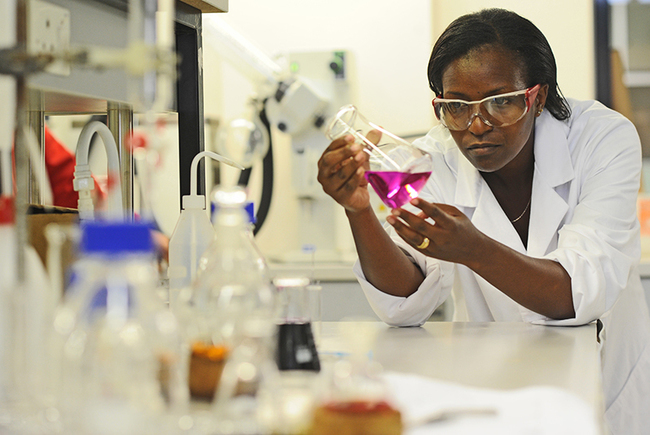
17 Jul 2020 Republished
Conversation #1: Academic conferences: how virtual can we go?
Monday, 29 June 2020, 17:30–18:30 (CAT/SAST)
Our first event focused on the future of conferences and international meetings. Most of us will by now have attended virtual versions of large international gatherings that were intended to be physical get-togethers. Should we consider this to be the future of conferences? What are the gains and losses of online conferences, workshops and consortium meetings? How can conferences be reinvented?
Host
- Mamokgethi Phakeng, vice-chancellor, University of Cape Town
Moderator
- Kelly Chibale, professor in organic chemistry, director of H3D, University of Cape Town
Participants
Videos
News







